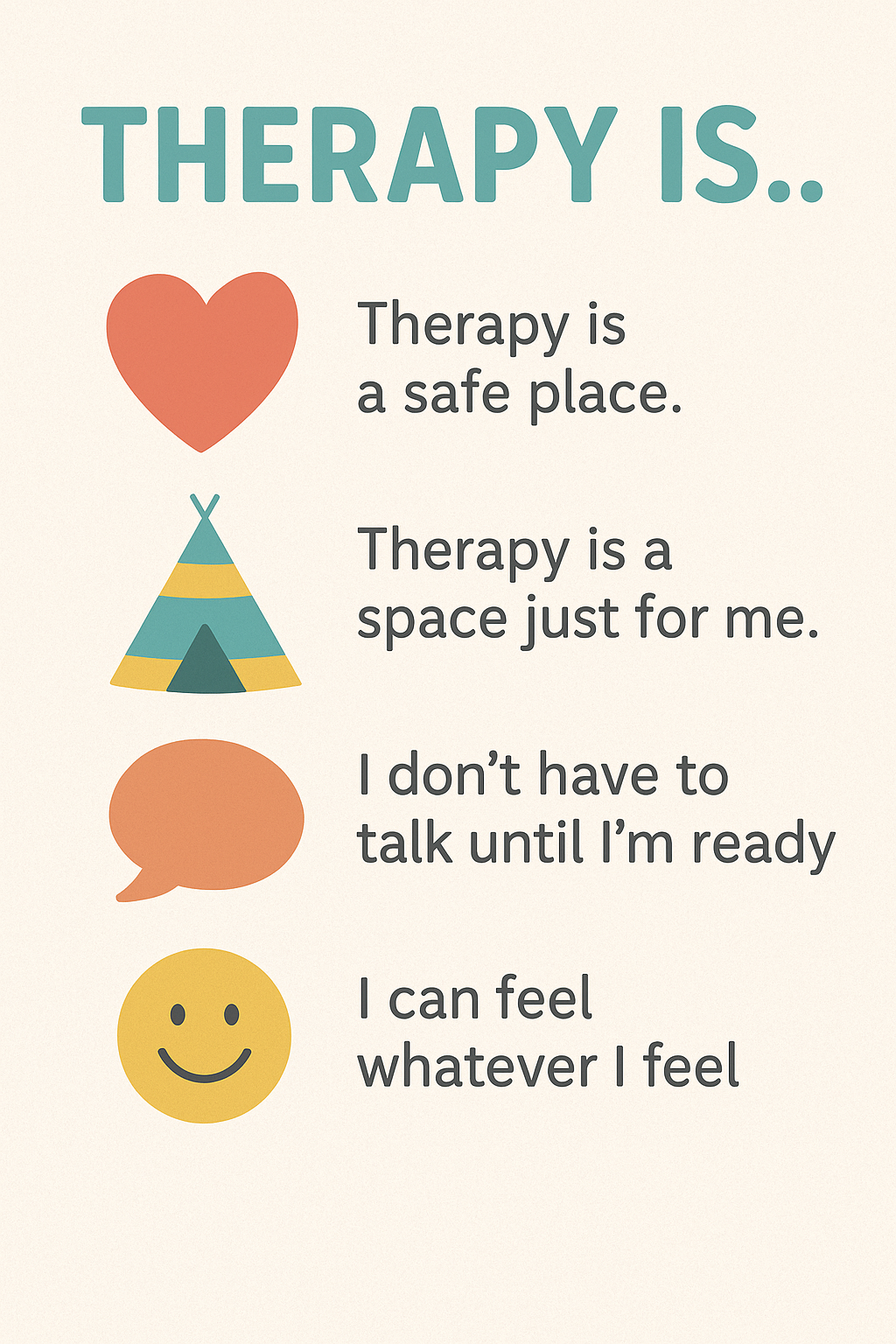What If My Child Resists Therapy? How to Encourage Them Without Forcing It
Starting therapy can be a big adjustment for kids and teens. Some children feel curious or relieved to have a space to talk. Others feel unsure or push back…sometimes strongly. It’s common for parents to ask:
🔹 “What if my child refuses to go?”
🔹 “Should I make them talk in therapy?”
🔹 “How can I help them see that therapy isn’t a punishment?”
At Reach Counseling, we understand that resistance to therapy isn’t a dead end. With the right support, most kids can grow to feel safe, understood, and even empowered in the process, even if they’re hesitant at first.
If your child doesn’t want to go to therapy (or already says they “hate it”), here’s how you can support them without forcing it, while still making sure they get the help they need.
Why Some Kids Resist Therapy (And Why It’s Normal)
It’s completely normal for kids to feel uncertain about therapy. Some common reasons include:
🧠 They don’t understand what therapy is. Kids may think therapy is like school or a test, where they’re expected to “perform” by talking about emotions.
😨 They feel nervous about opening up. Vulnerability can be hard…especially for kids who’ve learned to keep feelings inside or “stay strong.”
🗣 They believe something is ‘wrong’ with them. If they associate therapy with being broken or in trouble, shame may come into play.
🔄 They’ve had a bad experience. If a past therapist felt pushy or didn’t connect with them, it can shape how they view therapy now.
🚫 They didn’t choose it. Being told they have to go can trigger resistance, even when support is truly needed.
💬 Research insight: A 2021 study in the Journal of Clinical Child & Adolescent Psychology found that children who felt involved in the decision to begin therapy were more engaged and made faster progress than those who felt forced into it.
So how can you help your child feel more open to therapy, without creating more resistance?
1. Frame Therapy as a Tool, Not a Consequence
One of the biggest barriers for kids is the belief that therapy is only for when something is “wrong.” Instead, try to introduce it as something people use to understand themselves better.
🔹 Instead of: “You need therapy because you’re struggling.”
✅ Try: “A lot of people go to therapy. It helps them understand their feelings and feel more in control. Even adults do it.”
🔹 Instead of: “If you don’t go to therapy, things won’t get better.”
✅ Try: “Therapy is your space. You can talk, play, draw, or just hang out and see what it’s like. No pressure.”
Why it helps: Kids feel more at ease when therapy isn’t framed as a punishment, but rather as something that supports them.
2. Offer Choice and a Sense of Control
When therapy feels forced, kids may instinctively push back. Even small choices can help them feel more involved.
🗣 Try offering options like:
• For younger kids: “Do you want to bring your favorite toy or stuffed animal with you?”
• For tweens and teens: “Would you like to try online or in-person therapy?” or “Do you want to meet the therapist briefly before we start full sessions?”
Why it helps: Autonomy fosters cooperation. Kids who feel ownership over the process are more likely to participate.
3. Let the Therapist Lead the Engagement
Many parents feel responsible for making sure their child talks in therapy, but that’s our role. At Reach Counseling, we use developmentally appropriate approaches to meet each child where they are.
Here’s what that might look like:
🎨 For younger kids: Play therapy helps them express themselves through games, stories, and drawing.
💡 For tweens: Creative tools like roleplay or playing a game make talking easier.
🗣 For teens: We start by building trust, which often means talking about music, hobbies, or everyday life before deeper topics emerge.
Why it helps: Therapy doesn’t require a child to open up immediately. Safety and connection come first. Growth follows in time.
4. Validate Their Feelings (Even If You Disagree)
If your child says, “I hate therapy,” your first instinct might be to convince them it’s good for them. Instead, start by listening and validating.
✅ “I hear you. You’re not liking therapy right now, and that’s okay. It’s something new, and new things can feel weird or uncomfortable.”
✅ “You don’t have to love it, but I’d like us to give it a fair chance.”
Why it helps: When kids feel heard and not dismissed, they are more likely to stay open to the experience.
5. Give It Time
Not all kids warm up to therapy right away… and that’s okay.
🚦 Some need several sessions before they feel comfortable.
🚦 Others may express themselves through art, movement, or silence at first.
🚦 Some might resist entirely before gradually shifting over time.
At Reach Counseling, we focus on building trust before anything else. Therapy isn’t about forcing a child to talk. It’s about creating a space where they want to talk and when they’re ready.
💡 What to expect: Many parents notice small shifts in mood, coping, or communication before their child begins talking openly in therapy.
When to Push and When to Pause
If your child is shutting down or refusing therapy altogether, consider the context.
🚨 In a crisis?
If your child is experiencing self-harm, suicidal thoughts, or a serious mental health issue, therapy is essential. You can explain it like a medical need: “Just like we go to the doctor when something feels off in our body, we go to a therapist when our thoughts or emotions need support.”
🌿 In a non-crisis situation?
If therapy is for emotional growth, consider a short break or trying a different therapist. Resistance doesn’t mean failure—it may just mean a different approach is needed.
👩⚕️ Talk to the therapist.
We can adjust session structure, pace, or activities to help your child re-engage. Sometimes, shorter sessions or more creative strategies are what make the difference.
Final Thoughts: The Goal Is Support, Not Force
At Reach Counseling, we believe therapy should feel like a safe, empowering experience, not a battle. If your child is resisting therapy, you’re not alone, and it doesn’t mean therapy won’t help.
With patience, validation, and the right approach, most kids find their way into the process and begin to thrive.
💛 Need help navigating this with your child? We’re here to support you every step of the way.
📞 Reach out to schedule a consultation and take the next step toward healing and growth.



